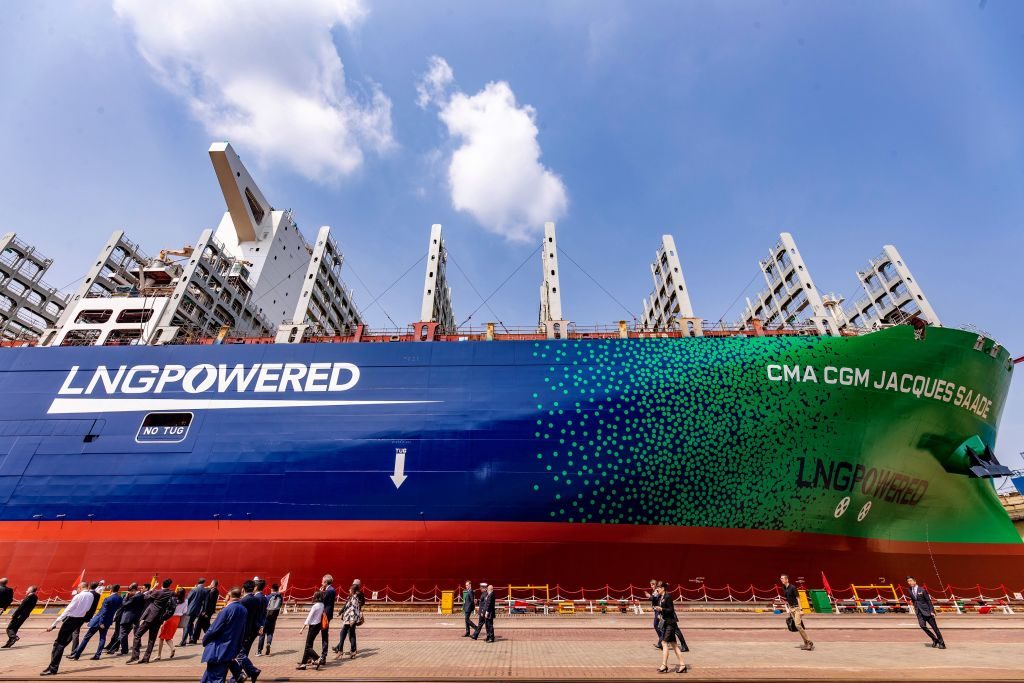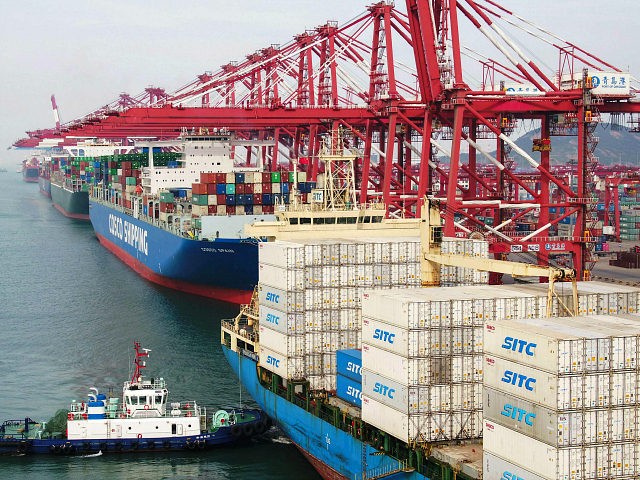Chinese shipbuilders have seen a “surge” in demand for new cargo ships in recent days, China’s state-run Global Times reported Wednesday.
“Orders for new cargo ships have rushed to Chinese shipbuilders in the past week, as the sky-high profits of shipping companies boosted by skyrocketing shipping costs amid the COVID-19 [Chinese coronavirus] pandemic have given major momentum to new orders,” the newspaper reported on March 9.
The Global Times detailed a number of new shipbuilding deals secured by two major Chinese shipyards — Jiangnan Shipyard and Zhoushan Changhong International Shipyard — in recent days, writing:
Singapore’s Pacific International Lines (PIL) placed an order for four dual-fuel containerships with 14,000-standard container capacity at China’s Jiangnan Shipyard, PIL announced on Tuesday [March 8].
Abu Dhabi National Oil Co (ADNOC) on Thursday [March 3] signed contracts for two 175,000-cubic-meter LNG vessels with Jiangnan Shipyard, for around $200 million each.
[…]
Japanese shipowner StarOcean Marine signed deals for two containerships with 2,500-standard container capacity with China’s Zhoushan Changhong International Shipyard on March 1.
An alleged Chinese shipping industry source identified only by his surname, Xu, told the Global Times on Wednesday “global shipowners have made new orders worth at least about $2.5 billion in the past week” according to some estimates.
The online shipping news journal Lloyd’s List published an article on March 4 alleging Jiangnan Shipyard was “in talks with several shipowners from both China and overseas about orders for large LNG [liquefied natural gas] carriers above 170,000 cu m [cubic meters].”
This report supports a statement made by Xu on March 10 in which he told the Global Times the majority of new Chinese shipbuilding orders over the past week were “dominated by containerships and natural gas carriers, and many [were] alternative-fuel capable.”

The world’s first LNG-powered 23,000-TEU container ship is seen docked during its launch at a shipyard in Shanghai. (STR/AFP via Getty)
Both Jiangnan Shipyard and Zhoushan Changhong International Shipyard are subsidiaries of the state-owned China State Shipbuilding Corporation (CSSC). The Global Times is published by the People’s Daily, which is the official newspaper of the Central Committee of the Chinese Communist Party.
The ongoing Chinese coronavirus pandemic, which began in March 2020, has caused global trade disruptions that in turn increased the costs of maritime freight shipping. The U.S. International Trade Commission detailed the phenomenon in a brief published in April 2021, writing:
Containerized maritime freight shipping costs have roughly tripled in the last year while experiencing
significant volatility. The immediate cause is a lack of shipping containers due to pandemic-related
transportation inefficiencies that have hit a breaking point. Using freight index data, shipping routes from
East Asian nations are experiencing the highest cost increases, though the consequences have been global.
The committee noted industry reports had “identified a lack of shipping containers as a root cause of the
rising CMFS [containerized maritime freight shipping] prices.”

COMMENTS
Please let us know if you're having issues with commenting.